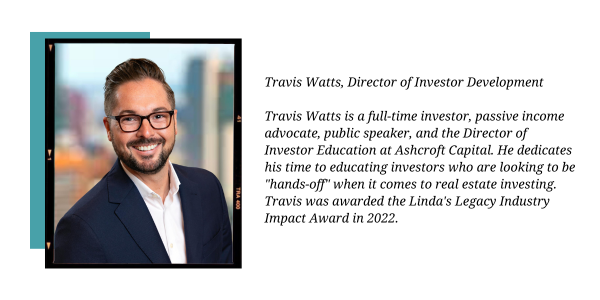May 21, 2024
By: Travis Watts, Director of Investor Development
Five Practical Methods to Teach Kids About Money
- Books
- Personal Finance
- Brokerage Accounts
- Gift Giving
- Mentorship
Empowering Kids with Financial Literacy
In today’s complex financial landscape, teaching kids about money has become more crucial than ever. Financial literacy is not just about managing dollars and cents; it encompasses a wide array of skills and knowledge that are essential for making informed decisions throughout life. By instilling financial wisdom early on, we prepare children for a future where they can navigate the economic challenges and opportunities that lie ahead.
As a proud parent of a 2-year-old, I can’t wait to dive into the topic of money and investing with him. In the meantime, I want to share five tips that have helped my four nephews learn the game of money and investing at a young age. These tips have given me the honor of watching them grow their money mindset and skillset over the past five years, and I want to share with you what I did and what you can do if you’re looking to be a positive financial influence.
A Closer Look at Teaching Methods
Books
My personal investing journey began with books, I started reading personal finance books in my late teens and early 20s. Little did I know how many great books are out there on the subject, especially today. However, I needed to be selective. Sending my nephews a 400-page book would not have been an effective start, as they were busy with school, sports, homework, and friends. To be efficient, I began with starter books.
The first book was Rich Dad’s Escape from the Rat Race: How to Become a Rich Kid by Following Rich Dad’s Advice by Robert Kiyosaki. The book is 64 pages in length and an easy read for ages 6 and up. Even at the age of 15, this book was valuable to them, and it started a discussion around investing.
The next book I bought them was How Rich People Think: Condensed Edition by Steve Siebold. Under 200 pages in total, and full of visuals, this book is not necessarily a “kid’s book,” but it is an easy read and helps train the mind to think like an investor and entrepreneur.
These two books really helped them form a strong foundation around investing and money. From here, I began sending well researched books to each of my nephews that would cover a topic that they wanted to learn about based on their specific circumstance at the time. For example, one nephew was starting his first job and had questions about saving money and another was interested in learning about building credit. Meanwhile, the next was considering student loans for college and wanted to learn more about debt.
The key was asking questions about what they were interested in learning. The same holds true for adults; I could give you a 300-page book on the history of fern trees, but I doubt you would read it unless that was your interest.
Personal Finance
I’m a big believer in personal budgeting and building a strong foundation for managing money, investing aside. In a recent podcast episode, I covered the powerful return on investment in many areas of personal finance. For example, let’s say one of my nephews has $1,000 saved up, and their question is “should I invest it or keep it in savings?” In many cases, the answer is neither.
Why? Let’s say they need to buy something like new shoes, or sports equipment. What if they bought the item used instead of new? What if they chose a lesser-known brand and the cost was 50% less? Better yet, what if they could put this item on a Christmas list instead of spending their own money in the first place? The bottom line is that small money habits can be even more impactful than investing when one has limited capital to work with.
Here is another way to think of it: $1,000 invested with a 10% annualized return is $100 per year but purchasing a $1,000 item (that you need to buy) at a 50% discount is equal to $500 back in your pocket. That is a five times greater ROI.
In another example, let’s say you have some credit card debt and you’re paying 20% interest. If you can recognize at an early age that paying off this high-interest debt may be a better return compared to investing, this can prove to be very valuable throughout a lifetime.
Brokerage Accounts
Years ago, I set up brokerage accounts to teach passive income investing to my nephews. There are many publicly traded stocks and ETFs that pay monthly dividends. While this may not be my personal investing preference, it is an easy way to get introduced to the concept of investing for passive income. Every month they get to watch their passive income grow and compound and they re-invest their dividends and distributions.
A brokerage account these days can often be set up for free at major brokerage houses, and the minimum starting balance is often very low—around $50 to $100. I funded these accounts initially for them as they were custodial accounts since my nephews were under the age of 18. When they turn 18, it’s a simple phone call, and the account becomes theirs exclusively.
A brokerage account is a good place to start because it is not dependent on income thresholds or having a job, and a brokerage account does not have as many rules attached to it compared to retirement accounts, college savings plans, and so on. The money can come from any source, no maximum contribution thresholds, and the funds can be used for whatever they choose as life goes on. Maybe they want to buy a house one day, or maybe they want to use the passive income to supplement their lifestyle before the age of 59.5. Whatever they choose, they have flexibility.
Gift Giving
I had a pain point in the early years watching my nephews grow up. For years, I would buy them gifts throughout the year (Christmas, birthdays, visits, and so on). My goal was to capture the latest trend and get them the coolest toys, but rarely did these well-intended gifts stick around. Most of these trendy “must-haves” were broken or lost within a year.
So, I changed the game when they were around 15 years old. All gifts from me became contributions toward their brokerage account. Nobody else was contributing to their accounts, so it became something special and unique that keeps the conversation going when it comes to investing. It’s the gift that keeps giving…
Mentorship
I am a firm believer in the power of mentors. However, free mentors can be hard to find, and paid mentors can be expensive. Investing in commercial real estate, as I do today, did not become a reality until I found a couple of successful investors who mentored me. This made all the difference in my life, so my goal is to do the same for them.
Every year I make my nephews an educational video about investing. I share tips, lessons learned, and real-life case studies that can help drive their success. I also make it known that I am here for them anytime they have questions or want to learn more. This is debatably the best value I can provide them while they are in the early learning phase.
“Always have a willing hand to help someone, you might be the only one that does.” – Roy Bennett
Summarizing Effective Methods to Teach Kids About Money
Teaching kids about money is an investment in their future. It equips them with essential skills to navigate the financial complexities of adulthood, fosters responsible decision-making, and promotes economic understanding. By prioritizing financial education, we can help the next generation build a secure, prosperous, and stress-free financial future.
With all this in mind, hopefully, there are a few practical ideas to consider. Whether you have kids, grandkids, nephews, nieces, or anyone in your life you would like to inspire, consider being a mentor for them.
Watch additional Passive Income Lifestyle episodes for further discussions surrounding passive income mindset, strategies, philosophies, and more on the Ashcroft Capital YouTube channel.
Want to learn more about multifamily investment or our current offerings? We welcome you to schedule a call with our investor relations team today.




